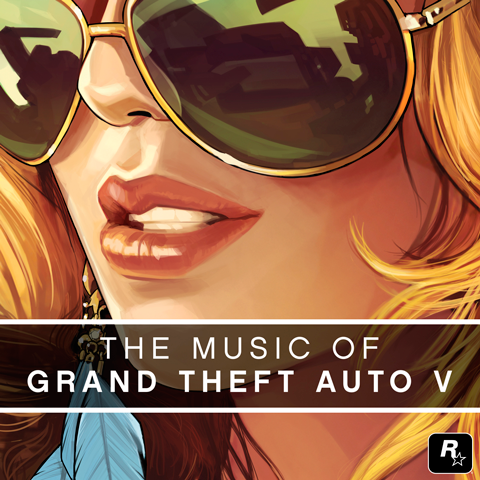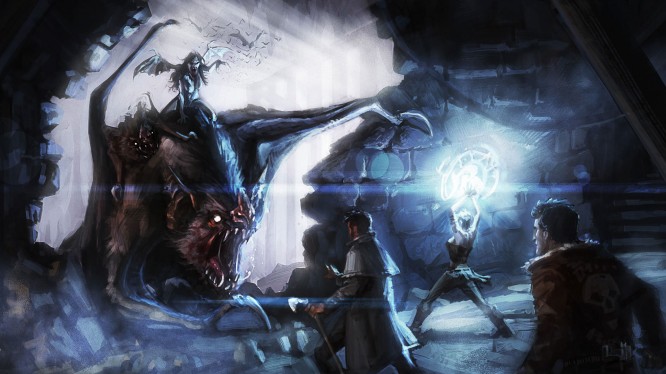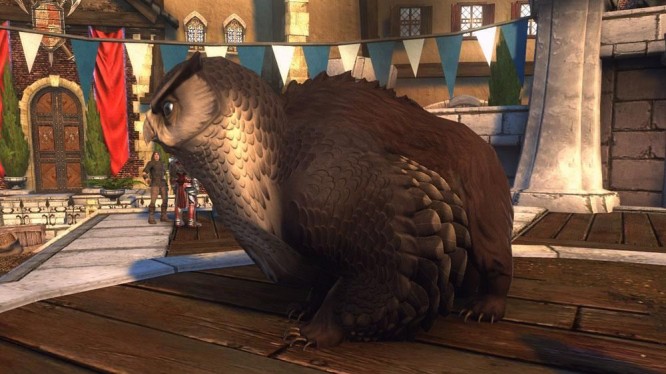

There was a time when business was concluded with a firm handshake. It was a different time, before cell phones, the internet, and live streaming. It was a time that made shoving tens of thousands of people into a conference hall make sense; where a millionaire executive could take the stage with some pretty ladies in skimpy outfits and preach about how his product was going to change the face of gaming forever. But as E3 descends from the heavens for another year, I cannot help but wonder how many of them we have left. How long until this relic of a different time is finally laid to rest, reborn into something new like a great, sweaty neon phoenix?
It isn’t hard to be cynical when it comes to E3. In fact, you should be. For many, last year felt like the time when the wool was unceremoniously ripped from our eyes as we were forced to confront the monsters that had been hiding in the gaming closet: Video games have a marketing problem. Games released, seemingly one after another, each failing to live up to their initial promise. Dark Souls 2 lacked many of the features that its early trailers had showcased, including the dynamic lighting system that had fan’s hands prematurely sweating at the thought of navigating the game’s treacherous dungeons either without a shield or without light.
Months later, Watch Dogs was released and consumers were once again forced to come to terms with a game that significantly missed the mark on many of its promises introduced by its E3 trailers. The trend continued on and on, even to this year with the controversy surrounding the alleged downgrade of visuals in The Witcher 3: Wild Hunt.
It led me to a startling disconnect between the intended purpose of E3, and the one that it had stumbled into a decade ago. There is a parable in the bible about a man serving two masters, and how impossible that becomes because he’ll always fail to adequately serve both. For years, E3 has been doing just that. Between the retailers and investors who help keep the business going round and the consumers who ultimately buy the products, there was a distinct break in the chain. The fact is, E3 was never met for us.
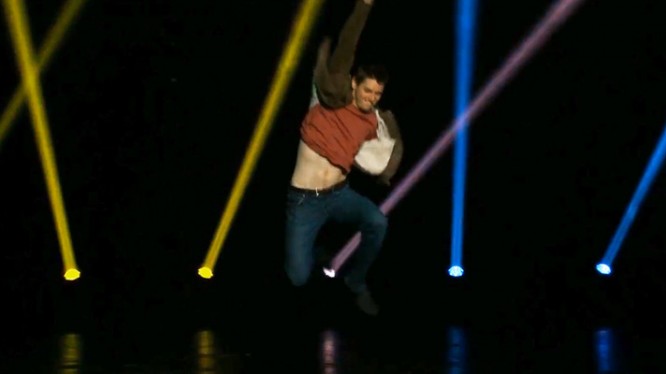
When the show started back in ’95, it was due to the fact that gaming was quickly outgrowing the humiliating corner it had been regulated to by the tech industry as a whole.
“In 1991, CES put us in a tent. You had to walk past all the porn vendors to find us. I was furious with how CES treated the video games industry and I started planning to get the hell out,” Tom Kalinske, President of Sega until 1996 said.
But E3, unlike PAX, Gamescom, and the multitude of other gaming conventions that are open to consumers, was never intended to be a consumer show. It first started as an event that catered specifically to the press, retailers, and investors of the industry.
There was also a time, just like the one where we concluded business with a firm handshake (and perhaps a cigar) when consumers were wholly reliant on the press and marketing for information regarding a game. The information was a product in itself, whispered from a developer to a journalist who would then print that information in a magazine for you to buy. But, much like handshakes, that time has also passed.
The dawn of the digital age has contributed to a deconstruction of the channels that were once the only waterway for information to flow from creators to consumers. Now, that information is delivered to us directly through live press conferences, developer blogs, and press releases. The gaming media has struggled to redefine itself in a time where that specialized insight isn’t only readily available, but quickly becoming a characteristic of the audience itself. Gamers have learned to talk with the same technical knowledge and understanding that many journalists had utilized years earlier. We no longer need someone to parse complicated developer-speak, or to tell us why graphics are incredible. Many can see and understand just fine for themselves. That isn’t to say the gaming press isn’t valuable. The insight into the business and people are still as valuable as ever. In fact, most of them have shifted gracefully into their redefined roles within the industry. They are now tastemakers and personalities, borrowing pages from YouTube game critics not beholden to corporate mandates and advertising budgets.
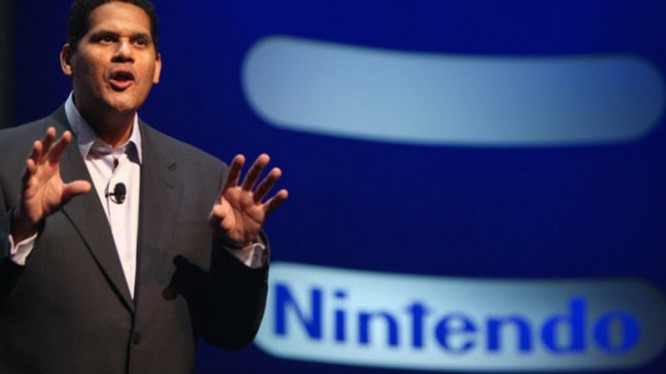
There was a time when dedicating a week to stuff a ballroom full of every important member of the industry made a lot of sense. But that was an age where I couldn’t sit in the comfort of my own home and gain access to the same information that a journalist received sitting in a sweltering room. A time where the developers this journalist will interview later weren’t quite so on point with their messages as PR people stood just within earshot listening for any slip or glitch in the carefully choreographed song-and-dance.
Video games, like most industries stemming from a pre-digital age, are beholden to all manner of strange forces. I remember being a child and actually loathing the summer because no games would ever release. But now we exist in a time where global releases are year round. Though the holiday season still commands the attention of every gamer, the other nine months of the year are just as full of quality games worthy of our time.
We live in an age free from the ceremony of Tuesday releases (though they still exist). A time that will also soon be free of the chains that retailers have strapped to the industry since its conception all those decades ago. Simply said, we live in a new age, one that gaming, much like most industries, has been incredibly slow to adopt. But they are getting there.
Last year, Nintendo shocked many when they announced that they would not be hosting their own press conference at E3. At the time, it seemed only to spell the doom for the troubled company. Their latest console, the WiiU, was drowning in the long shadow cast by its incredible predecessor. But as Miyamoto took the virtual stage in Nintendo’s digital-only conference, it quickly became apparent that after all these years, Nintendo was back on the cutting edge.
That conference felt like a breath of fresh air when it finally ended. It was an escape from the awkward jokes of millionaire executives, and for Nintendo, it finally meant they were leaving behind their awkward legacy of embarrassing E3 live demonstrations. The digital conference allowed them to control the message and free themselves from the brutal demands that a live talk puts on its hosts. The games worked flawlessly, the discussion embodied the cheeky fun Nintendo we all love, and, above all else, it felt like the focus was on the games.

As a consumer, there are times when E3 feels so far removed from its source material that I can’t help but feel baffled. When an executive stands on stage for minutes at a time, rambling endlessly as he fires off bullet points and buzz words, it utterly fails to capture the creative imagination that lies at the heart of this industry.
I’m not some starry-eyed fanatic. I get it: Video games are a business. But E3 is a show that teeters on the cusp of change, and the industry it represents has already jumped. There is no reason for E3 to hold onto the archaic traditions it so desperately clings to.
Should we still be excited for E3? Absolutely. But we should also be critical of the underlying vision that, at times, forces a schism between the heart of the show and the heart of games. Video games might have exploded into the mainstream from the sanitized white-rooms of corporate offices, but as the industry continues onward, it isn’t those traditions that will guide us forward. Gaming is as much an art as it is a business, and the creative processes that drive it are much the same.
We should be excited for E3 in the same sense we should be excited for all technology, not for what it achieves but for what potential it harnesses. E3 shouldn’t be a pageant where manufacturers and publishers sport their finest games before audiences while praying that everything works flawlessly. It should be a place to celebrate the vibrant majesty of creation. A week where creators can finally remove the partitions to show us a peek into their world and the wonderful things they are creating.
It’s time for E3 to drop the pretense and embrace what truly makes it magical: No more lame jokes, no more terrible on-stage demos or celebrity appearances. Just honest discussion about a hobby that is adored by millions of smart, discerning people capable of forming their own opinions. E3 might have started out for the suits, but as the show enters into its 21st year, it has never been more apparent that it should be for the fans.
